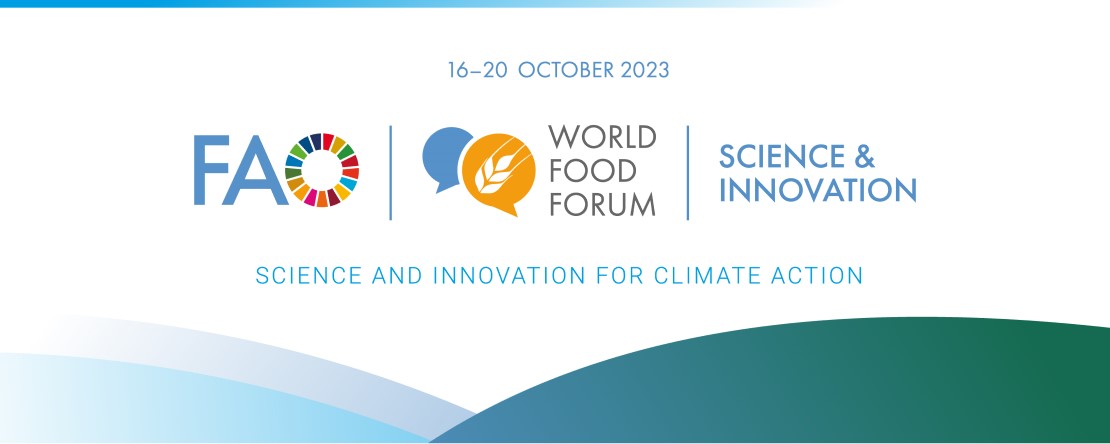
Case studies of agrifood system technologies and innovations for climate action
One of the objectives of the Science and Innovation Forum 2023 is to facilitate sharing experiences and lessons learned on implementing concrete solutions on the ground to step up climate action. There is a need to capitalize on win-win solutions, in which trade-offs and opportunities for efficiencies are effectively managed. The numerous opportunities for further innovation and collaboration must also be leveraged, for example public–private partnerships, knowledge sharing networks, and capacity building programmes. The session will highlight inspiring success stories of technologies and innovations at the crossroads of agrifood systems transformation and climate action. These success stories come from an FAO call soliciting illustrative country level case studies of agrifood system technologies and innovations for climate action in different regions. Following a review of the submissions, the most impactful, compelling and relevant case studies were selected. The selection of success stories aims to encompass and capture a broad range of technologies and innovations that are being used across all segments of agrifood systems. The case studies presented at the session will provide excellent examples of the technology/innovative solution(s) applied, obstacles and challenges encountered, factors for success as well as the impact that these technologies and innovations have made in people’s lives.
The session will conclude with the launch of the second round of the FAO-IAFN Accelerator Mentorship Programme for Women-led SMEs in Africa, with selected mentees showcasing how their businesses contribute to climate action.
Speakers

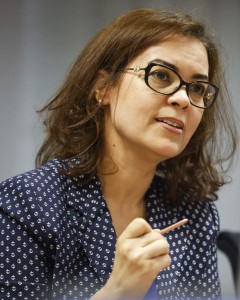


Before joining FAO, Beth was President and CEO of AgriNovus Indiana. Prior to this, she served as a Chief of Staff at the U.S. Department of Agriculture and Economist on the Senate Agriculture Committee.
Beth holds a bachelor’s degree from Georgetown University and master’s from Purdue University in agricultural economics.
She has two decades of experience in agricultural research and development in Asia, Africa and the Middle East.
She is internationally known for her work on promoting neglected and underutilized crops, use of non-fresh water in agriculture, and empowerment of women in science.
Anaporka Adazabra is a founder and the CEO of Farmio Limited, an innovation that leverages web and mobile technologies, climate-smart agriculture technologies, and precision farming principles to provide full value chain solutions for farmers.
With her knowledge in agribusiness, business development and greenhouse farming. Anaporka has worked extensively in the agri-tech space and has over 8 years’ experience in greenhouse technologies., farm management and agribusiness management.
She has been recognized by her work in impact in agriculture in Ghana and Africa by various organizations such as the Best Female Entrepreneur in Ghana for the Total Energies StartUpper Challenge and Best Female Entrepreneur African Pitch Agrihack contest with AGRA and Generation Africa. Farmio was also selected as part of the Top Female Entrepreneurs in Africa with SAFEEM, GIZ, Seedstars and the Tony Elumelu Foundation. She has promoted Gender Equality in her business and through these awards and as a Founder championing a course in Women in Agri-Tech and Climate Action in Africa.
Jaber Amin is currently a Ph.D. student at Cukurova University in Adana, Turkey, studying bee breeding and genetics in the Animal Science and Husbandry Department. He has a strong background in plant protection and plant pathology, holding a Master's Degree in Plant Pathology from Sudan University of Science and Technology. With expertise in applied entomology, pest control, and plant diseases, Jaber has also worked as a teaching assistant at the University of Zalingei and Omdurman Islamic University. He is dedicated to expanding his knowledge in plant pathology and contributing to the field.

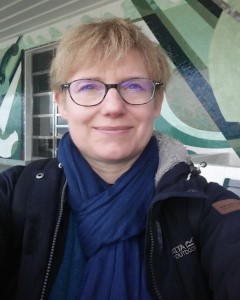

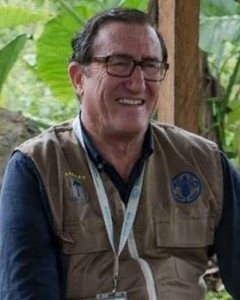
Robynne often represents organizations at the United Nations, bringing the voice of agriculture in multigovernmental processes. She coordinates Private Sector Mechanism representing agribusinesses at the UN Committee on World Food Security and the Food Systems Summit. Her savviness at international diplomacy brought innovative issues to prominence, such as the role of women in farming, land tenure guidelines, responsible agricultural investment, and the importance of food waste, and global sustainability. In 2022, she led the launch of the FAO-IAFN pilot Accelerator Mentorship Programme to support women entrepreneurs in addressing key challenges and constraints they face in their businesses. She also coordinated global activities for the International Year of Pulses on behalf of the Global Pulse Confederation reaching 1.1 billion people worldwide.
Françoise Bafort is a post-doctoral researcher at the Center of Urban Agriculture (C-RAU) -University of Liège – Gembloux Agro-Bio Tech, Belgium. After finishing her studies in biological sciences, she obtained a PhD in agronomical sciences at the C-RAU and is a prominent researcher in sustainable agriculture for more than 15 years. C-RAU is dedicated to promoting research as a catalyst for creating synergies between the academic world, decision-makers, citizens and companies in order to develop innovative food production systems appropriate to cities and their periphery, with a focus on the use and optimization of local resources, the circular economy by integrating waste and surplus into the production cycle, and the preservation and restoration of biodiversity. The case study presented at FAO World Food Forum is a fruitful collaboration between the University of Liège and Oxfam Belgium to enhance food security through hydroponic techniques, with the assistance of Afad, a local Algerian partner.
Janice Bailey is Scientific Director of the Fonds de recherche du Québec - Nature et technologies (FRQNT), Canada, which aims to promote research as a catalyst for well-being and sustainable prosperity and an accelerator for adaptation to the climate and biodiversity crises. After completing her studies, she was appointed professor of Agriculture & Food Sciences and adjunct in Medicine at Laval University. An active researcher for over 25 years, her research explored the impact of the environment on fertility and the ability to produce healthy offspring over multiple generations. She worked on a range of species, including bees, fish, agriculturally-important animals, humans, and even polar bears. Professor Bailey has been recognized for her research and leadership by several organizations. Notably, she was recently named a Distinguished Fellow of the Society for the Study of Reproduction and Fellow of the Canadian Academy of Health Sciences.
Ricardo Javier Dominguez Llosa has a PhD in Physical Geography, with over 35 years of experience in environment and sustainable development, protected areas, biosphere reserves, indigenous groups across Africa, Latin America, the Caribbean and the Pacific as a manager, advisor and researcher for international organizations. His expertise includes climate change and sustainable development strategies focused on biodiversity, ecosystems, energy access/efficiency, renewable energy and green low-emission solutions. He advocates for climate-resilient, low-emission development to support adaptation, mitigation and indigenous communities. His specialties include early warning systems, disaster risk reduction, food security innovations using traditional knowledge and organizational aspects of agricultural biodiversity programs. Working with FAO-SAP-Vanuatu since 2019.




With an indomitable entrepreneurial spirit, Cassandra has astoundingly co-founded four successful companies in Nigeria, each a testament to her visionary leadership and business acumen. Her ventures span various sectors, mainly agriculture, cementing her reputation as a versatile and accomplished businesswoman. These companies have not only contributed to the Nigerian economy but have also created job opportunities, fostering local talent and growth in the economy.
Her story serves as an inspiration, demonstrating that success in business can be coupled with a deep sense of social responsibility. She continues to be a beacon of entrepreneurship and innovation, making a lasting difference in the business world.
A graduate of Accounting and Finance, she has attended a number of executives programmes at Lagos Business School. She has more than 20 years of corporate experience in agribusiness, particularly seed research and breeding as well as Climate Smart Crop Production. She is one of the early agripreneur to introduce commercial value chain extension service in Nigeria, which has resulted in dramatic yield increase for smallholder farmers.
She is married to a loving and supportive husband and the marriage is blessed with three children.
Abebe Haile-Gabriel is currently FAO's Assistant Director-General and Regional Representative for Africa, a position that he has been holding since 2018. In this capacity, he leads FAO’s response to Africa regional priorities for food security, nutrition, agriculture, and rural development, with a commitment to steering FAO's efforts toward a more efficient, inclusive, resilient and sustainable agrifood systems within the African continent.
During his over 35 years of extensive experience, he has demonstrated strategic leadership and management skills in complex environments across national, subregional, and regional levels, specifically in agricultural and rural development. His previous experiences include FAO Deputy Regional Representative for Africa, Regional Programme Leader, and FAO Representative to Ghana; more than a decade of service to the African Union in various capacities, including as Director of the Department of Rural Economy and Agriculture from 2010-2015, during which time he notably facilitated the implementation of the Comprehensive Africa Agriculture Development Programme (CAADP), led the formulation of the 2014 Malabo Declaration on Agricultural Growth and Transformation, and coordinated the African Common Position on Climate Change, among other continental flagship policy frameworks and initiatives.
Abebe began his career as a faculty member at Alemaya University of Agriculture in Ethiopia in 1986 and progressed to become an educator, researcher, and leader within Ethiopian Higher Education system. He played a crucial role in designing and executing capacity-building initiatives that supported governance reforms and agricultural transformation in his native country, Ethiopia. Abebe Haile-Gabriel holds a PhD in Development Studies from the International Institute of Social Studies, Erasmus University, the Netherlands.
Prof. Ehab A. Ibrahim is a chief researcher at the Horticulture Research Institute, Agricultural Research Center (ARC), Egypt. He was the Head of the Cross-Pollinated Vegetable Crops Research Department (2015-2018). He specializes in Vegetable Crops. Research experience: physiological and production of vegetable crops; analysis of the response to abiotic stresses in vegetables; biochar production and application in vegetable fields and plant breeding. He has led two national and state-funded projects to build the adaptive capacity of the farming community in soil pollution management and future crops. He has published over 35 articles in peer-reviewed journals and one book chapter.


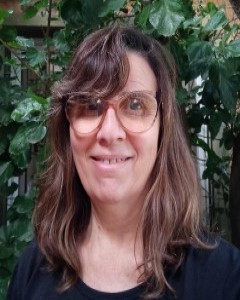

Yogesh Jadhav is chief operating officer at Barli Development Institute for Rural Women (BDIRW), India, which aims to mainstream gender equality & environmental conservation among social-sector actors (rural communities, institutions, tribal women, farmer-groups, civil society & NGOs) through building their capacities, conducting training programs & empowering rural women with vocational skills & knowledge. The program includes (among others) solar food processing, organic farming and sustainable living practices using circular economy principles. With 23 years of experience in research, advisory & implementation leadership, Mr Jadhav has managed multi-disciplinary projects and delivered impacts in forestry, environment and social development programs in South Asia and South America.
Pauline Mounjouenpou is senior researcher at IRAD, Cameroon and holds a Ph.D, HDR, Msc, in food science and nutrition with 23 years of experience. Her research is on the prospective approach of traditional food processing systems, and their implication on quality, environment and resulting innovations. Her results have made it possible to develop several innovations which helped improving producers’ income and alleviating food insecurity issues and malnutrition in Cameroon. In 2020, the results on cassava research activities allowed her to win an award of scientific excellence. She is a member of many society learnings and author of a hundred scientific publications, Dr Mounjouenpou as coordinated several multidisciplinary research projects and has supervised the research work of about fifty students.
Griselda Muñoz is undergraduate and postgraduate teacher and researcher at the Faculty of Agrarian Sciences-UNR, Argentina. Academic Coordinator of Undergraduate Diploma: Agroecological transition applied to extensive systems in the core area of the Pampas region. Director of the Gender and Human Rights Directorate. Institutional manager of the COVID Contingency Commission. Member of the Board of Directors of the Argentinian Society of Agroecology. Regional Representative and Coordinator of the Education Commission. Postgraduate teacher at the Faculty of Veterinary Sciences (UNR) and the Faculty of Humanities and Arts (UNR). Main lines of research: Professional training in agricultural sciences Education in agroecology.
